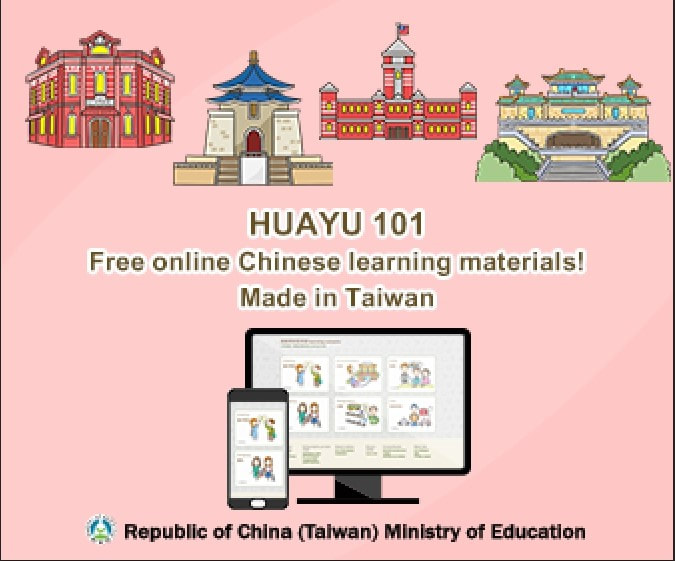|
Starting in March 2020, the Taiwanese government has implemented a temporary ban on entry for all foreign citizens as a preventive measure against COVID-19. This week, authorities have announced a partial relaxation of the travel ban. Starting on June 29, 2020, Taiwan will once again allow entry to business travelers with special permits, though travelers are barred from entering Taiwan for tourism or other social purposes. Concurrently, Taiwan’s Ministry of Education has also announced a phased reopening plan for foreign students to enter Taiwan. At present, only students from a list of 11 countries will be allowed to enter, not including the United States. Accordingly, the Consular Division at TECO New York will continue to temporarily suspend issuance of visas to US students. Please see the following announcement from the Ministry of Education for details: https://english.moe.gov.tw/cp-117-24066-b99d8-1.html
0 Comments
As the United States Military Academy at West Point graduated its cadets from the Class of 2020 on June 13, 2020, the ceremony also marked the end of another successful year of Chinese-language teaching collaboration between West Point and universities in Taiwan. Under a longstanding cooperation program with the U.S. Military Academy’s Department of Foreign Languages, Taiwan’s Ministry of Education provides funding each year for teachers from universities in Taiwan to teach Mandarin Chinese at the Academy as visiting scholars. In 2020, three Taiwanese instructors were selected to teach at West Point: Bing-Fang Chu (祝冰芳) from Fu Jen University, Chao-Yi Hu (胡昭儀) from National Tsing-Hua University, and Jung-Jung Kang (康容榕), also from National Tsing-Hua University.
This year’s graduation ceremony at West Point was unique due to the measures put in place to contain COVID-19. For the first time since 1977, the ceremony was not held at the school’s football stadium, Michie Stadium, because the venue was not large enough to seat all graduates with social distancing. Instead, the ceremony was held on an outdoor parade ground with all 1,107 graduating cadets seated on chairs placed six feet (two meters) apart. No audience members were allowed to attend, including family and friends of the graduates. President Donald Trump attended the ceremony in person and delivered the commencement address. However, rather than the traditional practice of having each cadet walk onto the stage to shake the President’s hand, this year the cadets simply saluted him from below the stage while their names were called. Since 2014, the U.S. Military Academy has selected visiting Chinese language instructors primarily from Fu Jen University in Taiwan, but the program has been broadened to include instructors from National Tsing-Hua University this year. Officials at West Point have praised the high caliber of these Taiwanese visiting scholars, applauding them for possessing the “quality, maturity, and discipline…[that are] exactly the preparation that young scholars participating in this program need.” West Point is one of the leading institutions of higher education in the United States, and its graduates go on to become preeminent leaders in the U.S. military, government, and business. Thus, the Ministry of Education strongly values the collaboration between West Point and universities in Taiwan, providing Chinese instructors who not only train American cadets to acquire foreign language skills, but also help to shape the minds of these future leaders. TAIPEI, Taiwan – Huayu 101, an online Mandarin Chinese learning platform established by Taiwan’s Ministry of Education (MOE) for foreigners on short-term stays in Taiwan, has launched six new learning scenarios this year for Chinese language learners.
Commissioned by the MOE in 2017, the University of Taipei has developed six chapters of learning scenarios that collect dialogues for everyday Chinese, encompassing “Greetings,” “Accommodation,” “Shopping,” “Order,” “Transportation,” and “Asking for help.” This year, it added more everyday conversations to Huayu 101, including “City tour,” “Arts and cultural activities,” “Call and reservation,” “Exchange,” “Making friends,” and “Hospital and post office.” The e-learning materials select the most practical conversations based on experiences of students from different countries, with scenarios spanning greetings, making friends, tourism, business, transportation, accommodation, shopping, reservation, and hospital. These sentences are dubbed by Taiwanese teachers and allow users to change the vocabularies they would like to practice for different scenarios. Moreover, each text is paired with lively illustrations, leading users to learn Chinese effectively through contents presented simultaneously in both visual and verbal forms. According to the MOE, demand for e-learning has surged due to impacts of the coronavirus outbreak. Through just connecting to the internet, users can get easy access to learn Chinese phrases for daily use on Huayu 101. In addition to Huayu 101, the Office of Global Mandarin Education (OGME) established by the MOE also offers free online learning courses for teachers and learners, including “Start From Scratch,” “Intermediate Chinese,” “FLTA Story Book Series,” “Mandarin in 300 Sentences,” and “Fall in Love With Mandarin.” Since the Huayu 101 website went live, it has attracted almost 90,000 active users and received positive feedback from students and teachers in Taiwan and overseas. Contacts: OGME (Office of Global Mandarin Education) 丁于芬 Tel No: +886-2-2391-1368 ext.1324 Email: [email protected] |
Education Division (TECO-NY) Archives
March 2023
Categories |
© 2023 Education Division, Taipei Economic & Cultural Office in New York | 駐紐約臺北經濟文化辦事處 教育組
1 East 42nd Street, 6th Floor, New York, NY 10017 | Phone: (212) 317-7389/7386
1 East 42nd Street, 6th Floor, New York, NY 10017 | Phone: (212) 317-7389/7386


 RSS Feed
RSS Feed